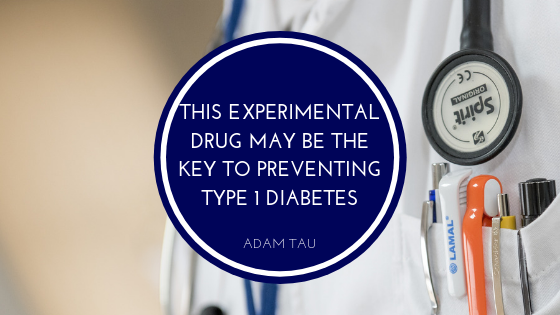On June 9th, an article published in the New England Journal of Medicine revealed that a new drug has successfully delayed the onset of Type 1 diabetes for those who are at risk. The results of this trial could be a pivotal advancement in treating a disease that was previously deemed impossible to prevent.
As we have covered several times, Type 1 diabetes is when the body’s immune system kills the beta cells in the pancreas, thus preventing the production of insulin. The cause of Type 1 diabetes is still unknown, but health professionals have discovered that it runs in families, and those with the disease are diagnosed as a child.
Although no exact cause has been identified, several health complications are evident such as damage to the kidney and heart or amputations of the limbs due to poor circulation. With over 1.25 million Americans affected by Type 1, the results of this trial could be life-changing for future generations.
Within the trial, all of the 76 participants were related to someone with Type 1 diabetes. About 75% of the subjects were 18 years old or younger. Participants also positively tested for antibodies that showed they would develop diabetes later down the line.
The participants were given a drug known as teplizumab. Teplizumab is an antibody that when administered, will take action against beta-killing cells. Over two weeks, participants were given the drug via infusion; meanwhile, the participants in the control were given a placebo. The trial concluded in November of 2018 after researchers monitored the participants over the course of two years or until they developed Type 1.
The conclusion of the study revealed that less than half of the participants who received the drug during the trial developed diabetes during the trial. Meanwhile, almost 75% of those who received the placebo developed diabetes. Those in the treatment group who developed diabetes developed the disease at a slower rate, 48 months (on average) compared to 24 months of the placebo group.
Although the study proved to have some impressive results, there were a few limitations. For those with full-time jobs, the two-week infusion process wasn’t practical. Those who couldn’t make it to every infusion may have skewed the results. Another limitation was the lack of participants and the fact that most of the subjects were white.
Despite the limitations of the trial, the results have generated excitement amongst those who are susceptible to Type 1. With initial success in delaying and preventing Type 1, more research will be needed before teplizumab is approved by the Federal Drug Administration and available to the public.
